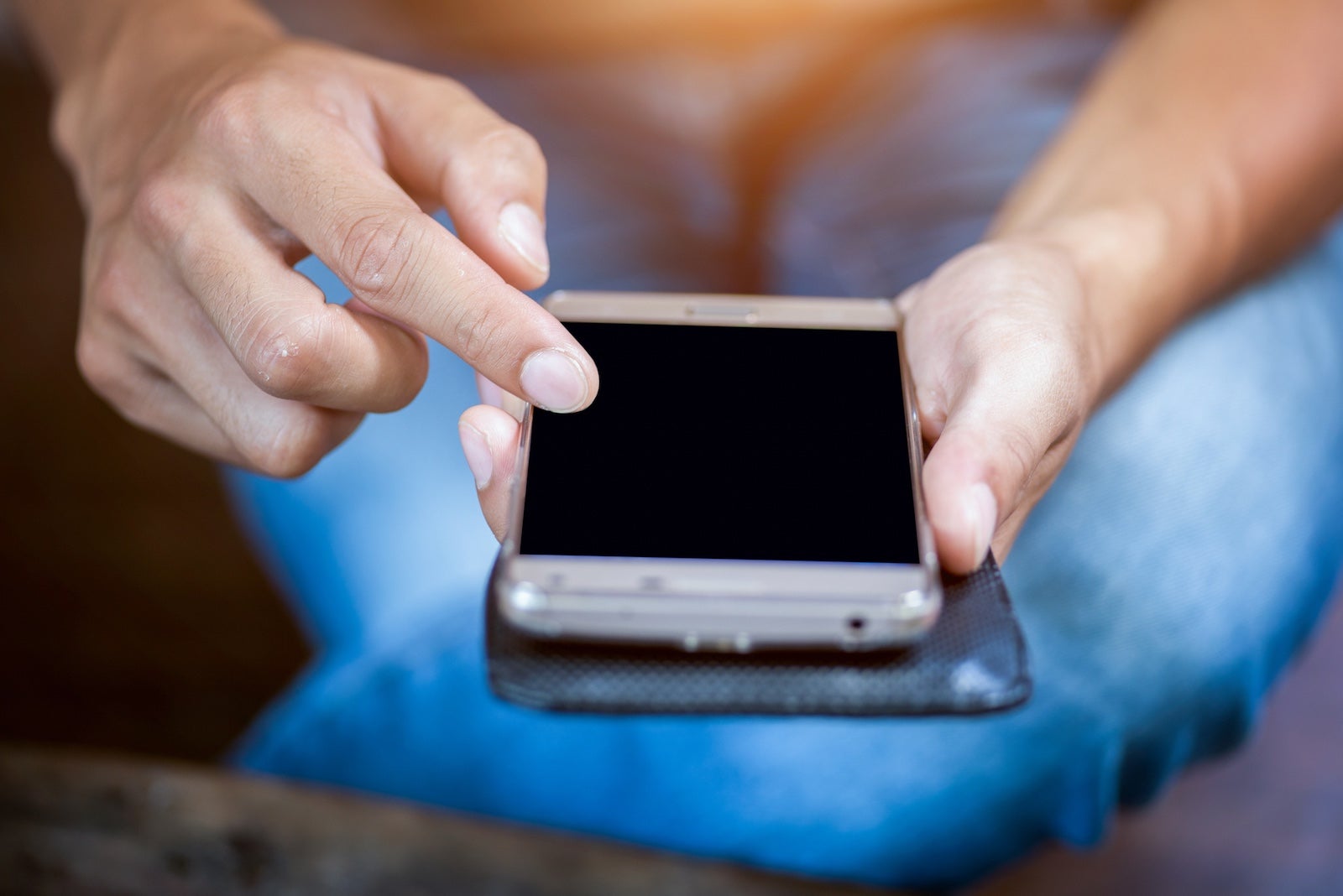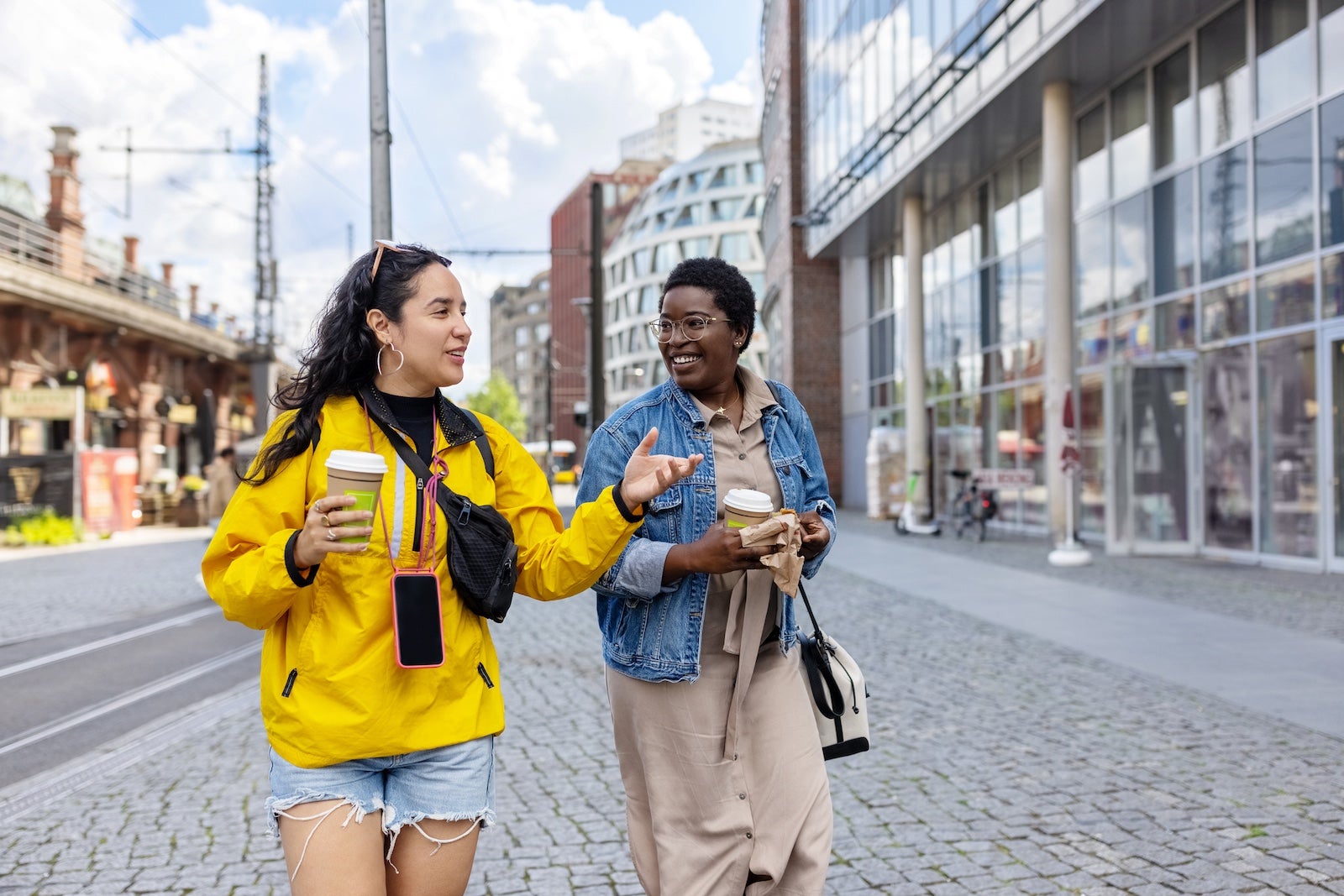Though it is normal and fun to document our travels on social media, sharing too much information can lead to identity theft. For example, a 26-year-old man was arrested last week after posing as another passenger to board a Delta Air Lines flight without a ticket.
The nefarious traveler was able to board the plane at Salt Lake City International Airport (SLC) using a screenshot of the other person’s boarding pass he took when she wasn’t looking, per reporting by The New York Times. Though a bit shocking, this is not the first time people have figured out how to successfully board a plane without a ticket or even pass through airport security to board a flight without a ticket.
It is vital you protect yourself and your travel documents when traveling.
Here are tips to protect your boarding pass and other important travel documents.
Buy a screen protector

Though you can’t prevent someone from looking over your shoulder onto your phone, a screen protector makes it significantly more difficult. It darkens the screen to anyone but those holding the phone.
A screen protector could have potentially prevented — or at least made it significantly more difficult — for the aforementioned Delta passenger to take advantage of an innocent flyer. According to The New York Times, the bad actor was “seen taking photos of the phones of several passengers in a Delta Air Lines boarding area while they weren’t looking,” which he then used to board the flight. The newspaper also said the man passed through TSA security at SLC using a photo ID and boarding pass without issue, though it’s not clear whose boarding pass he used to do so.
Thus, a screen protector is perhaps the easiest step you can take to protect your boarding pass. You should honestly think of your boarding pass as a credit card containing important information. The QR code found on the digital boarding passes many travelers use is also highly valuable; it provides your Passenger Name Record, which is a six-digit alphanumeric code.
A traveler’s PNR is unique to the individual’s booking, acting as the “digital certificate allowing passengers to do online check-in or manage their bookings in a short time,” per Turkish airline Pegasus. “This code allows passengers to manage their bookings such as reprinting a lost flight ticket or printing the ticket at the airport. For this reason, passengers are required to keep this code after purchasing the flight ticket.”
Thus, a PNR code unlocks a traveler’s name. This means you could access the reservation, find out additional personal information (identifying characteristics, such as date of birth, age, height and more) and even cancel the affected party’s booking online if you so choose, according to TPG senior writer Ben Smithson.
“You could also scan a PNR code from a photo with your QR reader to get the same info,” he warned.
With nearly 120,000 five-star reviews on Amazon, this three-pack of Ailun Glass Screen Protectors is well worth the $5.99 price in exchange for additional peace of mind.
Don’t publish sensitive information in real-time
Along the same lines, refrain from publishing PNRs or boarding passes on social media; these are key pieces of information that can share your whereabouts. The same goes for specific flight information and even your final destinations.
Another good rule of thumb for all travelers, especially solo female travelers, is to refrain from sharing your exact location while traveling in real-time. Even posting clues about where you are staying — such as the interior of a restaurant, let alone the exact location — can provide enough information for someone to identify your location.
For example, you might be able to recall 2016 when Kim Kardashian had $10 million worth of jewelry stolen in Paris after thieves determined she was staying at Hotel de Pourtales via her online presence over the course of two years.
If you are a travel influencer and share recommendations, think about waiting to post your hotels, restaurants and activities until you’ve already left that site.
Pay attention to your surroundings

This may go without saying, but you must pay attention to your surroundings and those around you when traveling. In doing so, you might notice and be able to prevent scammers, like the aforementioned Delta passenger, from taking advantage of your personal documents and belongings.
If you’ve ever been to Europe, you’ve likely been warned of petty crime; it is more common there than in the U.S., whereas violent crime is more abundant in the U.S. Abroad, thieves tend to target tourists, specifically for petty purse snatching, pickpocketing and phone grabbing. This happens particularly in popular tourist areas such as city centers and tourist attractions.
Do your best not to make yourself known as a tourist and always have your head on a swivel.
Put everything in a bag
Being disorganized when traveling can leave us vulnerable. Though we recommend keeping your travel documents in a safe place — such as a hotel safe — once you reach your destination, consider also traveling with a secure purse to keep your documents and important personal belongings safe.
TPG editorial director Andrea Rotondo recommends this Travelon Anti-Theft-Class Small East/West Crossbody Bag, which has RFDI blocking pockets, slash-proof material and straps, plus interlocking zipper pulls.
“I wear my purse, so I feel this is pretty safe,” she told me. Plus, at 10.5 inches by 8 inches, it’s small enough to fold up in a larger purse or suitcase should you want to switch it out while traveling.
If you don’t carry a purse while traveling, such as TPG video director Ayana Morali, use a backpack with a hidden pocket to store your items during airport travel. Then, switch it over to a hidden pocket in your suitcase upon arrival.
Take photos of your travel documents and save them in a secure place

Taking photocopies of your travel documents on your phone, especially abroad, is good practice, per the U.S. State Department. The department also says to leave a copy of your passport with a trusted friend or relative while carrying another copy separate from your original documents.
This is important because a photocopied passport can also serve as evidence of your U.S. citizenship should you need to replace a missing passport abroad.
“I also have a photo of my passport emailed to me in case I lose it while abroad,” Ayana said. For safer storage, TPG social media director Caroline English suggests storing passports and other information in a password manager such as 1Password.
Bottom line
If you’ve gotten this far, you might be feeling scared for your next trip, but I actually hope this piece does the opposite of that. Rather, I hope you find these tips empowering for you as a traveler.
Whether you travel solo as a female, with your aging boomer parents or with someone who considers themself an expert traveler, there’s no such thing as being too safe.
Related reading:



